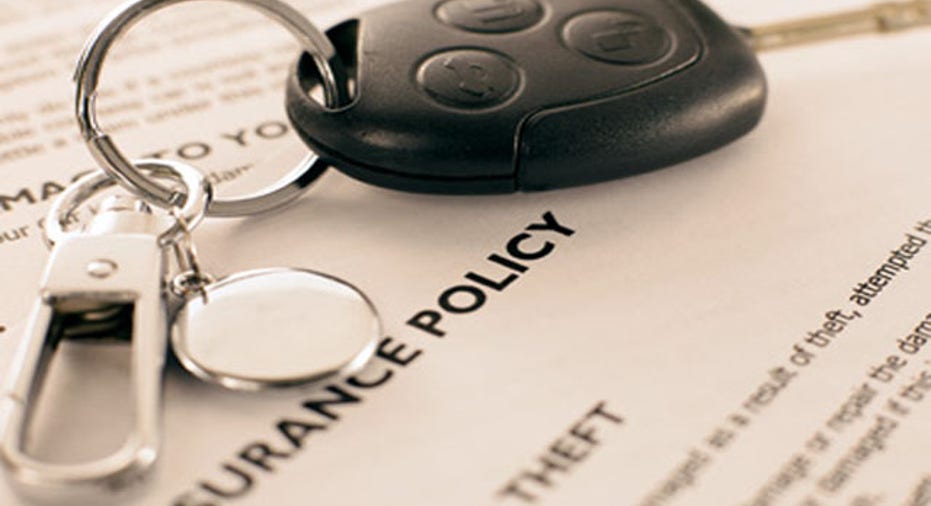Brake-Checkers, Beware

Question: I had a car following me too closely. I braked to let her pass me. She swerved to miss me, hit a wall and totaled her car. The police officer said that the accident was both of our faults. He gave her two tickets, one for following too closely and no insurance, and I received a ticket for rapid decrease of speed. I don't feel like I'm responsible for her bad driving and crashed car, but can she make a claim against me?
Answer: If the other driver feels you were to blame for her crashing into a wall, then it's very likely that she'll make a claim against your auto insurance policy. She could claim against your property damage liability coverages for her totaled vehicle and your bodily injury liability coverage if she sustained injuries in this accident.
Your auto insurer will investigate any claims made against your policy (get statements from each of you, review the police report, etc.) and make a determination on if the claim will be accepted or denied.
Keep in mind that just because you and the other driver both received tickets and the police officer said both drivers were at fault, it doesn't mean that your auto insurance company will find fault the same way. However, it's very probable that they will find you somewhat responsible.
While your vehicles never touched, by brake-checking the driver behind you, she lost control and crashed her car. Your auto insurance company could easily find that your actions contributed to the accident and find you partly to blame for the damages the other party received.
Luckily, it doesn't appear you intended to make the other party wreck, or that may have become an issue. (See “Dumb moves behind the wheel: covered.”)
If you're both found to be partially at fault, then your state's negligence laws will determine if the other party can recover anything from your liability coverage.
Partly to blame? Here's part of the damages
States have either contributory or comparative negligence laws.
Alabama, District of Columbia, Maryland, North Carolina and Virginia all have a contributory negligence rule. In these states, the other driver wouldn't be able to collect from your coverages if she were found even 1% at fault.
All other states have some sort of comparative negligence law. If a comparative negligence rule is in place in your state, then the other driver may be able to collect damages -- but only to the degree to which she wasn't at fault. Comparative negligence laws can be pure or modified.
Thirteen states have a pure comparative fault rule, which means they allow a driver to recover even if she is 99% at fault.
In the 33 states with modified comparative negligence laws, there is a threshold for fault beyond which the other driver cannot recover damages. Read more about these rules and negligence laws here.
One other issue that could affect the other party's ability to collect from your liability coverages is that she was driving without insurance. Several states have “no pay, no play” laws in place that limit uninsured motorists claims for certain damages.
Many states with “no pay, no play” laws don't allow recovery for non-economic losses, such as pain and suffering, but do allow the damaged party to claim for damages to their vehicle or medical expenses for injuries. One exception is Louisiana; here an uninsured driver cannot receive compensation for the first $15,000 of bodily injury or $25,000 of property damage. (See “If uninsured driver gets hit, can he file a claim?” for more information.)
Though physical contact between cars wasn't made in this accident, the ticket you received and any claims placed against your policy could cause your future auto insurance rates to rise. If that occurs, make sure you comparison shop to find the cheapest car insurance rates. You may find lower rates, by hundreds of dollars if not more, by just shopping around. (See “12 ways to double-check your savings.”)
The original article can be found at CarInsurance.com:Brake-checkers, beware



















